In this exclusive article for Index on Censorship magazine, Aryeh Neier (right) recalls the controversial Skokie First Amendment case –-- still a landmark in the history of free expression after more than 30 years Read here


In this exclusive article for Index on Censorship magazine, Aryeh Neier (right) recalls the controversial Skokie First Amendment case –-- still a landmark in the history of free expression after more than 30 years Read here
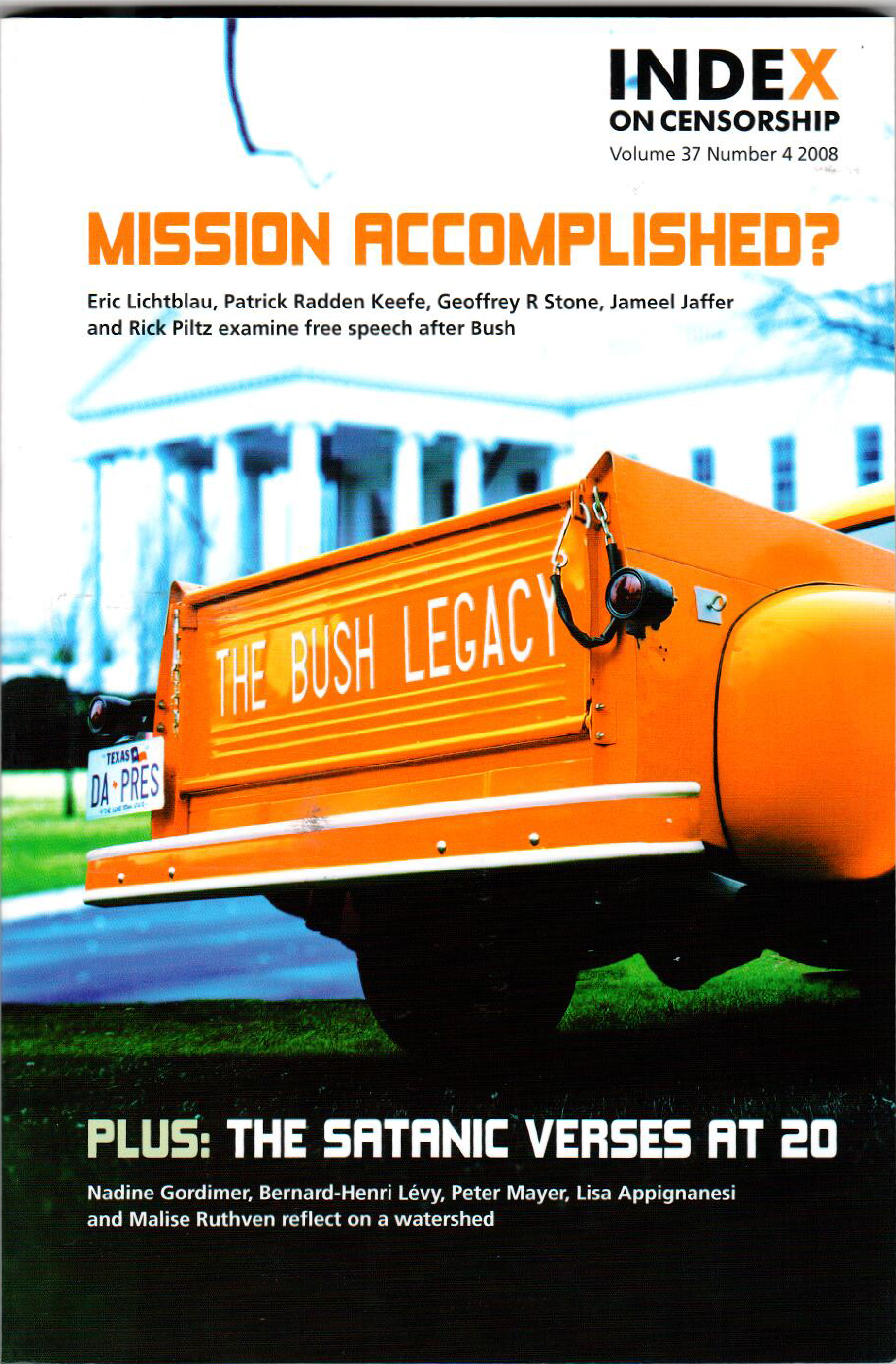
[vc_row][vc_column width="1/2"][vc_single_image image="90659" img_size="full" onclick="custom_link" link="https://shop.exacteditions.com/gb/index-on-censorship"][/vc_column][vc_column width="1/2"][vc_column_text] Full digital access to Mission...

In this celebration of the 60th anniversary of Article 19 of the Universal Declaration of Human Rights, AC Grayling says freedom of speech is the most precious of rights - giving us the chance of being fully human Most human rights instruments...

Hammaad Munshi has been sentenced to two years for downloading jihadist materials, the latest conviction under the Terrorism Act 2000. In an article in the current issue of Index on Censorship, human rights and criminal lawyer Imran Khan argues...
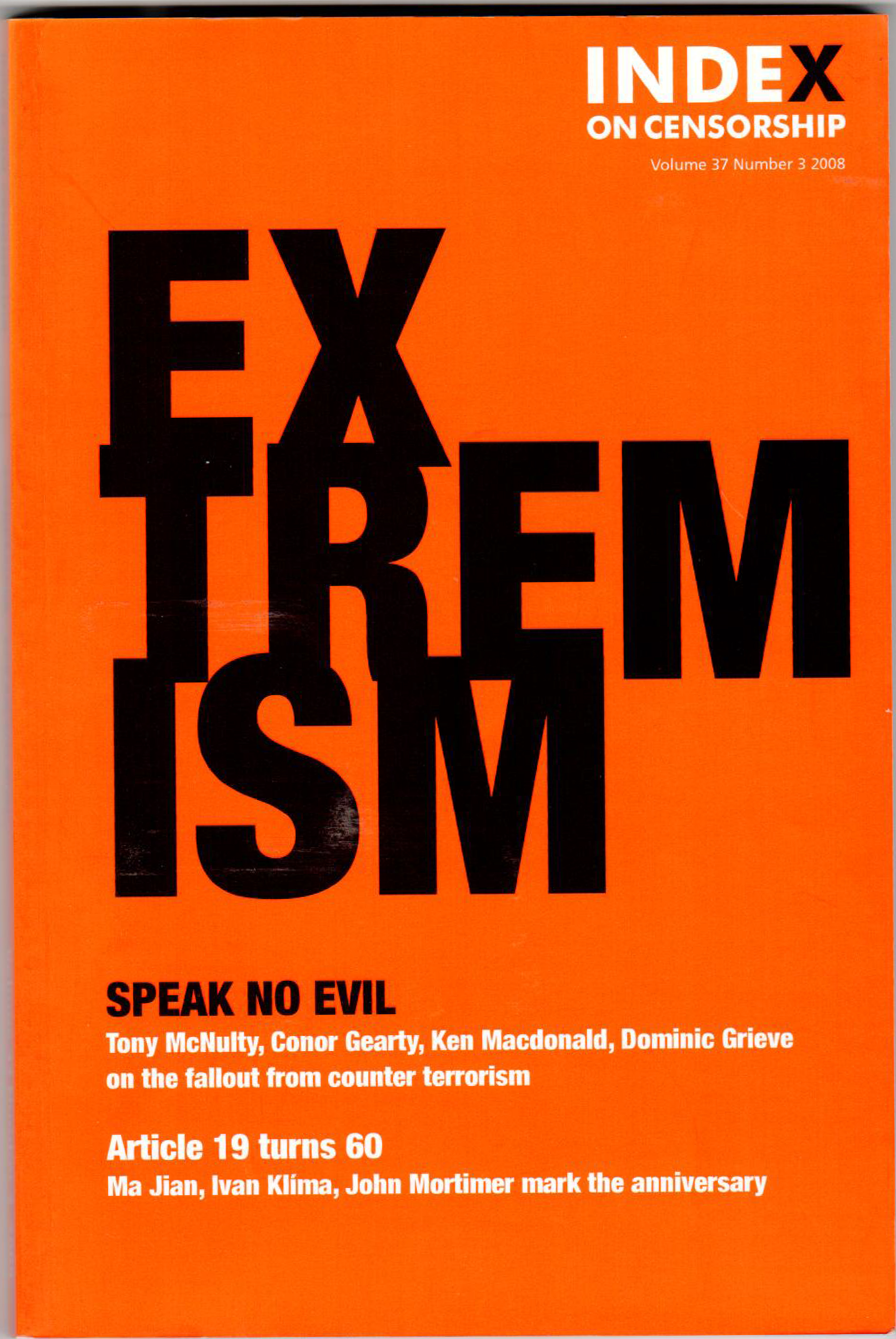
Index on Censorship magazine looks back at the historic landmarks for free speech and examines the current obstacles.

This week's convictions of three British men on terrorism offences showed that there is still much to learn about jihadist groups in the UK and internationally. In an article in the new issue of Index on Censorship, Newsnight's Richard Watson...
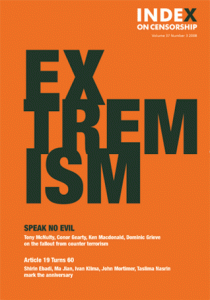
This week, four feminist bloggers were sentenced to imprisonment in Iran. In an exclusive preview of the new issue of Index on Censorhip (out next week), Iranian Nobel laureate Shirin Ebadi discusses the prospects for free expression in her...
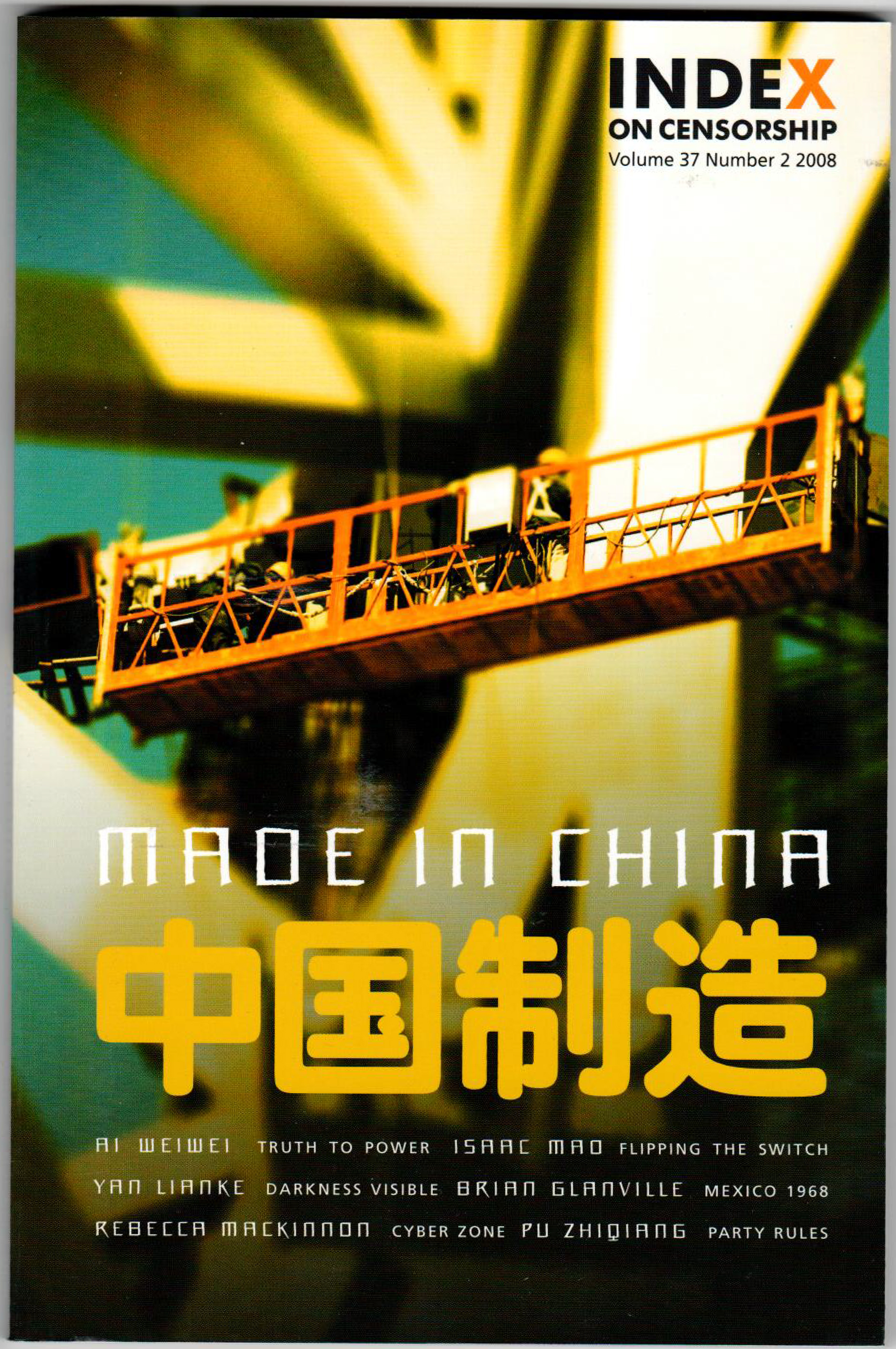
As China recovers from the devastating earthquake, can it still meet its Olympic challenge of harmony and openness? Despite the crackdown on dissent in the run-up to the games, there are bold and outspoken voices that find a way to get heard. In this special issue, artists, writers, bloggers and journalists map the boundaries of free expression, reveal the cost of breaking taboos and find the cracks in the Great Firewall.
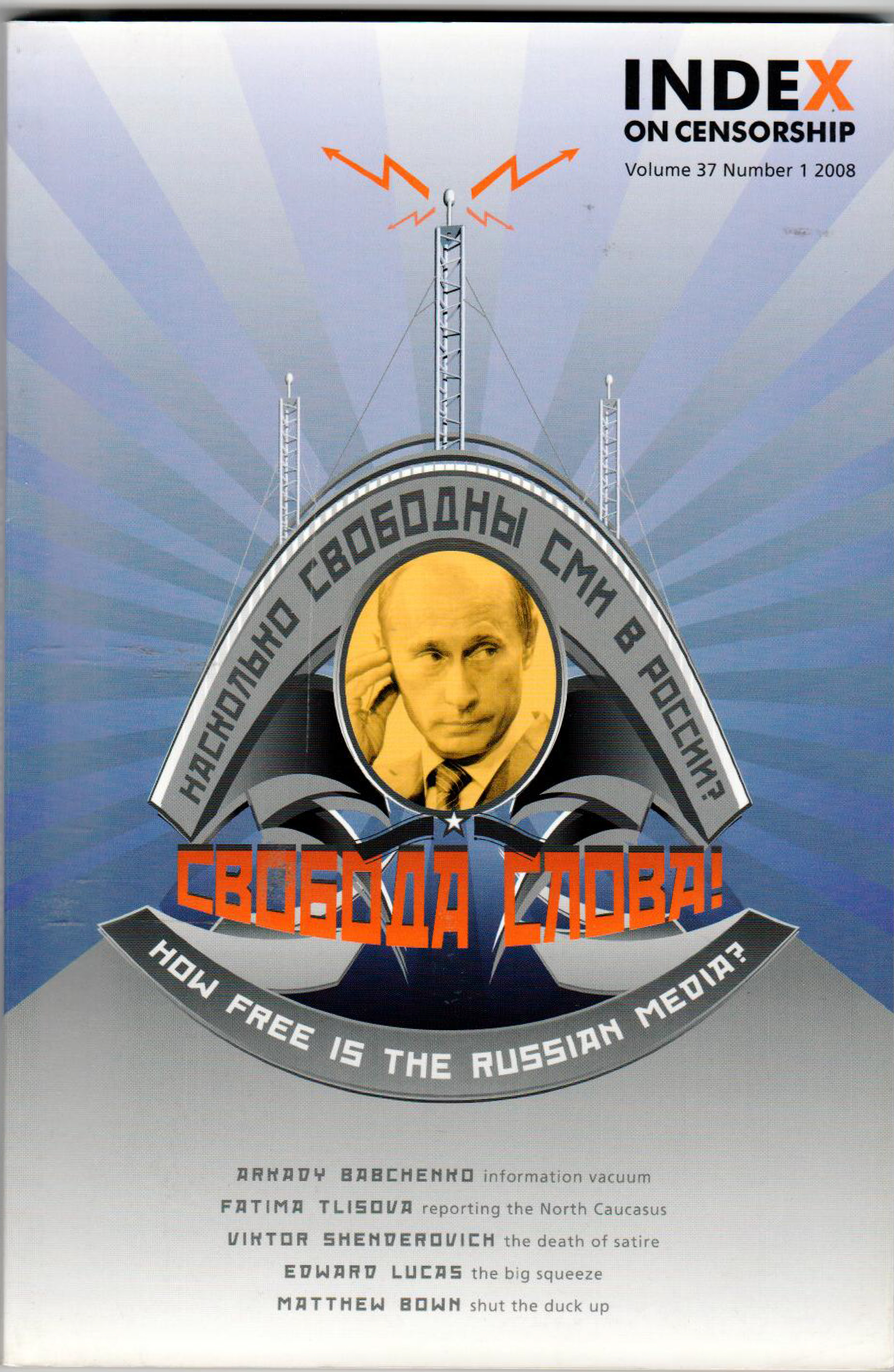
Our special report explores how Russia remains one of the most dangerous places in the world for journalists, as well as how national television is in the pocket of the Kremlin and news coverage is dominated by propaganda.
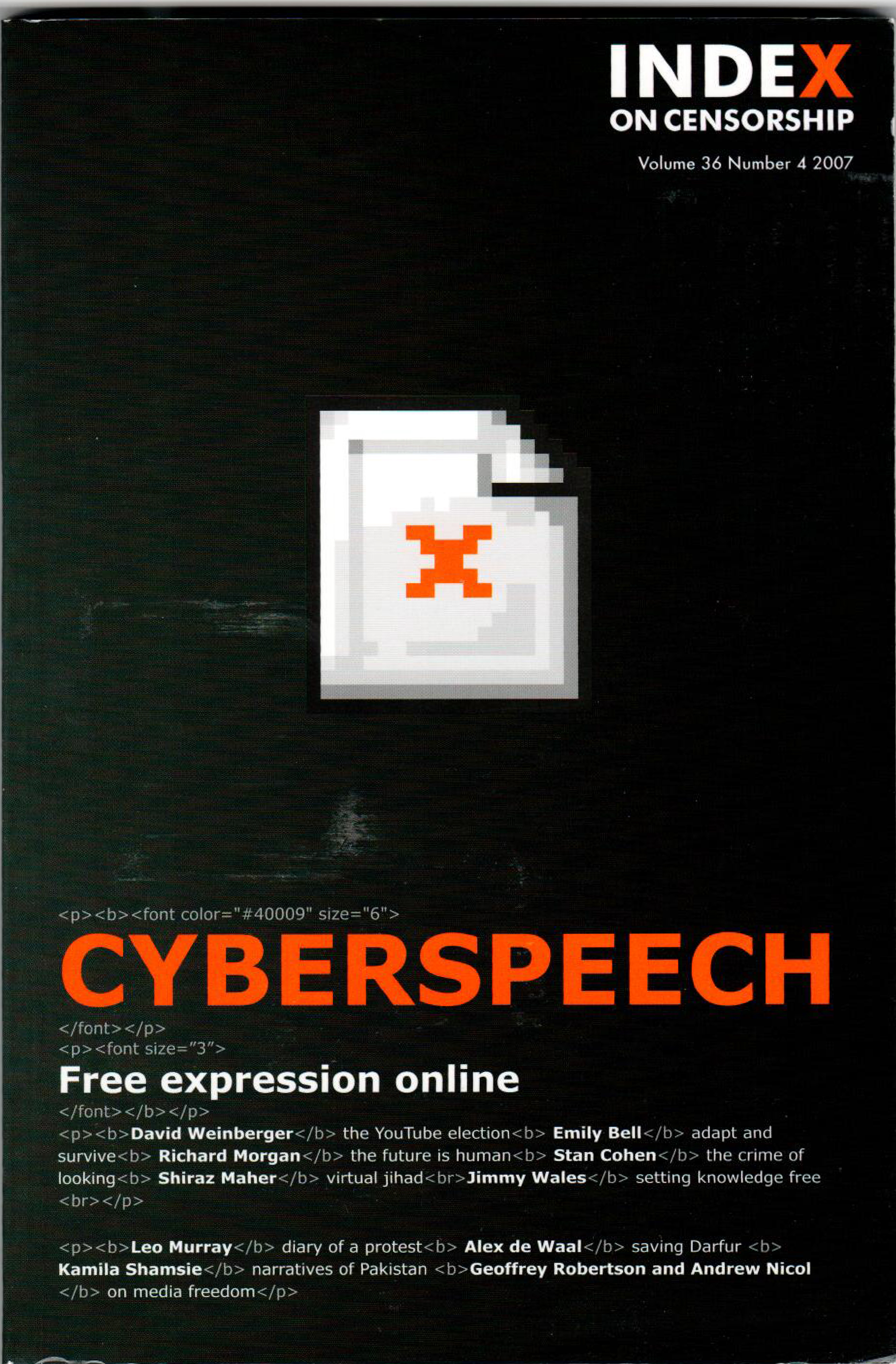
Index examines the internet-driven explosion in communication, new forms of censorship (and the ways to get round them) and the impact on social attitudes
A quarterly journal set up in 1972, Index on Censorship magazine has published oppressed writers and refused to be silenced across hundreds of issues.
The brainchild of the poet Stephen Spender, and translator Michael Scammell, the magazine’s very first issue included a never-before-published poem, written while serving a sentence in a labour camp, by the Soviet dissident Aleksandr Solzhenitsyn, who went on to win a Nobel prize later that year.
The magazine continued to be a thorn in the side of Soviet censors, but its scope was far wider. From the beginning, Index declared its mission to stand up for free expression as a fundamental human right for people everywhere – it was particularly vocal in its coverage of the oppressive military regimes of southern Europe and Latin America but was also clear that freedom of expression was not only a problem in faraway dictatorships. The winter 1979 issue, for example, reported on a controversy in the United States in which the Public Broadcasting Service had heavily edited a documentary about racism in Britain and then gone to court attempting to prevent screenings of the original version. Learn more.